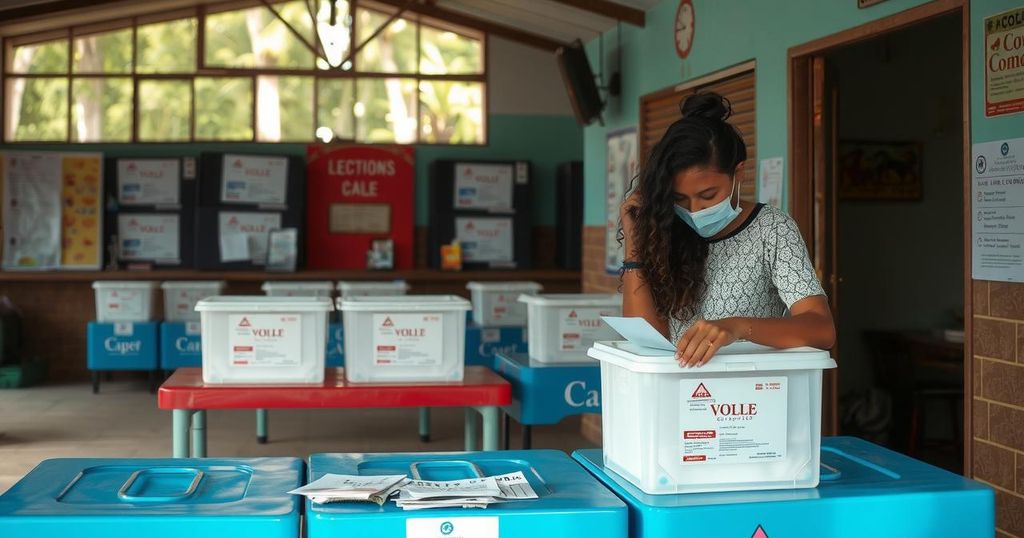Comoros Legislative Elections: A Call for Transparency Amid Opposition Boycott
On Sunday, Comoros held legislative elections marked by the boycott of many opposition groups who deemed the vote lacking in transparency. President Azali Assoumani’s son, Nour El-Fath Azali, is a key candidate in these elections. Voting procedures faced significant challenges, raising concerns about voter privacy and election integrity. Azali has encouraged opposition engagement despite previous allegations of electoral fraud and unrest.
The Indian Ocean nation of Comoros conducted legislative elections amid controversy, as several prominent opposition factions opted to boycott the process, citing a lack of transparency. Nour El-Fath Azali, son of President Azali Assoumani and the current secretary general, is contesting a seat near the capital Moroni. Reports indicated logistical challenges at polling stations, with some opening late or lacking sufficient privacy for voters. Observers noted makeshift arrangements that compromised the integrity of the voting process.
The election follows a tumultuous period for President Azali, who secured re-election earlier this year amid claims of fraud and subsequent unrest. Despite this backdrop, Azali praised the peaceful conduct of the campaign, expressing gratitude towards the opposition candidates for their participation. He urged for constructive engagement, contrasting with the dynamics of the previous legislative elections that saw the ruling party gain unchecked influence due to opposition withdrawal.
Concerns about electoral integrity were exemplified by a frustrated voter’s remark regarding the lack of indelible ink, a crucial element for ensuring transparent voting. With 340,000 registered voters, the election will allow for the direct election of thirty-three parliamentary members, while a second round has been scheduled for February. The ruling Convention for the Renewal of the Comoros (CRC) is anticipated to maintain its parliamentary dominance, raising further questions about the democratic principles at play in this small nation.
The Comoros, an archipelago located in the Indian Ocean, has experienced political instability and allegations of electoral malpractice over recent years. President Azali Assoumani, a former military ruler, has had a tumultuous political career, including his controversial re-election in January 2024. His government has been criticized for undermining democratic processes, particularly evidenced in previous elections where opposition groups successfully boycotted the vote, leading to uncontested victories for his party. The current elections reflect ongoing tensions between the ruling party and opposition forces, raising alarms about the overall health of democracy in Comoros.
The recent elections in Comoros highlight ongoing political tensions and the problematic nature of electoral integrity under President Azali’s administration. With opposition groups largely boycotting the vote and numerous logistical issues at polling stations, the legitimacy of the election is under scrutiny. As the ruling Convention for the Renewal of the Comoros seeks continued dominance in parliament, the calls for constructive opposition and restoration of democratic values echo louder than ever.
Original Source: www.arabnews.com




Post Comment